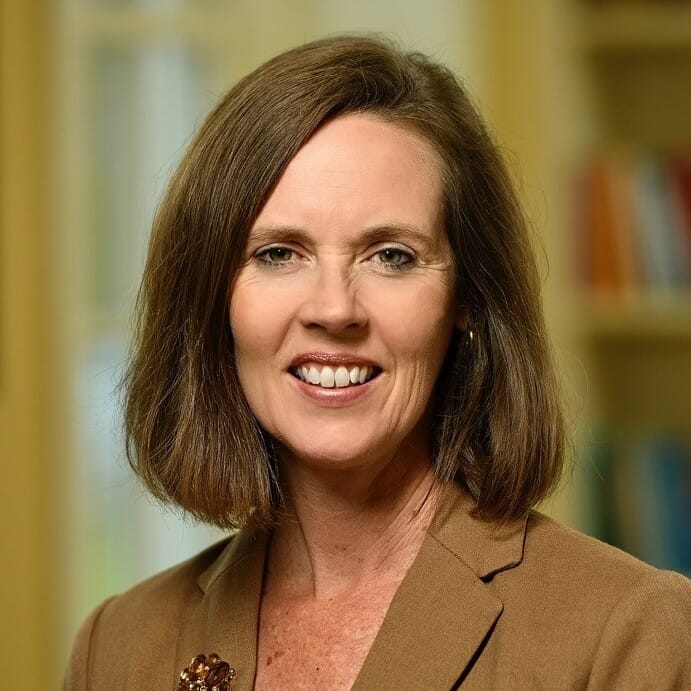
THE SUCCESS AT GETTYSBURG COLLEGE
This article is the first in a series by Ashlyn Sowell, Gettysburg’s associate vice president and campaign director. Here, Sowell reviews 4 lessons about campaign communications and volunteer management that she and her team at Gettysburg learned — from their volunteers.
“Leveraging these key lessons,” Sowell adds, “we have successfully engaged over 100 volunteers in the quiet or leadership phase of the campaign and are tracking ahead of our goal. I believe with volunteers leading the way we will involve more Gettysburgians in the public phase of the campaign, exceed our goal, and groom the leaders needed to be successful in the next campaign for the college.”
We hope you will find this article useful and share it with your colleagues.
As we embarked on the largest campaign in our school’s history, our campaign consultant gave us some important advice.
She said that our campaign must be owned by the president and by the volunteer leadership, not by the staff.
We took her advice to heart. With our board chair, we carefully selected each volunteer that would help us during our planning phase. The board chair personally recruited each volunteer, and I believe that got our campaign off to a solid start. If you are in the planning stage of a campaign, or even the silent or leadership phase, you can help ensure your success by paying close attention to your volunteers and involving them right away.
I, like many development professionals, have had the privilege of working with some great volunteers over the years. You know, people who show up for every special event, call into each conference call despite the time zone, and wear their school colors with pride (even on their pajamas!). I believe they can teach us some valuable lessons.
Here are four such lessons I have learned about campaigns from our own volunteers at Gettysburg College:
1. Inspiration Matters
I work with a key group of volunteers at Gettysburg College, our campaign steering committee. Most of the volunteers are trustees and have been involved and invested for a long time. After a few meetings for which I had worked with my team members to produce detailed agendas, various campaign reports, and orange and blue color coded GANTT charts, I asked one of our volunteers how he thought we were doing so far. Bob said, “Well, it’s informational, but not very inspirational.”
Ouch!
But he was right. He was telling me that I was forgetting that the campaign was about people, not numbers, and I needed to change my approach.
His candid comments led me to be sure that we focused at each meeting on the students and faculty and the incredible impact of the dollars we raised, not just the totals. Volunteers want to be inspired over and over by the work that we all do together.
2. Language and Culture Make a Difference
After having our campaign communications consultant present a proposed case for support to nearly a hundred of our closest volunteers, I got to hear and read the feedback from several of them. Their thoughts were quite useful, but one comment struck me in particular. A young graduate asked how come the campaign language referred to “the” college when it was “our” college? Such a simple question! In fact a few months before our president made a speech that talked specifically about “our Gettysburg.” Alex had listened, but more importantly, he experienced that close-knit culture as a student and now as an alumni leader.
We changed the title of the campaign to “Gettysburg Great – The Campaign for Our College” and it creates a sense of ownership that was not there before. Volunteers can really peg what sounds and feels right to them about their school based on personal experience.
3. It’s Not What You Know, It’s Who You Know
It may take some time and training, but volunteers are going to be your best connectors.
A campaign succeeds in two ways – by reaching as many people as you can and by reaching the right people. While we sometimes fear that volunteers may be unwilling or unable to do fundraising (that is, actually make the ask), almost all of them are willing to make connections for you.
I’ve learned this in particular from my parent volunteers. Steve, a Gettysburg parent, once told me, “If my daughter is happy, then I am happy.” Because of the family’s satisfaction with their daughter’s academic experience, Steve has become a true advocate. He has hosted special events at his D.C. law firm, given career advice to his daughter’s fellow students, and been willing to contact other parents (and even alumni!) on behalf of the campaign.
While we as staff members can work hard to make those connections, our volunteers have them instantly and that gives a different kind of credibility to the case for support. Learn how to ask for and use their connections.
4. Volunteers Just Want to Have Fun
Now I know that some of you have that ‘80s Cyndi Lauper tune in your head, but that’s not what I mean. And I want to say quickly that fun is defined differently for different folks, but it includes having a feeling of impact and purpose. Our volunteers have many demands on their time and they give very generously to our institutions. Jean, a long term volunteer and devoted supporter, asked me once, “If people are not having some kind of fun – why do this?”
It reminded me that planning some social time for volunteers helps them to reconnect and remember what they loved about their alma mater in the first place. Now, we always plan some fun and meaningful interaction (beyond my colorful spreadsheets!) into the schedule.
Things to Remember
Volunteers mean long-term value
Remember that another valuable byproduct of the investment with volunteers is that they often make a larger gift to the campaign than they would have without involvement.
A LOOK AT THE DATA
In fact, a December 2009 study by the Fidelity Charitable Gift Fund and VolunteerMatch found that the average amount given by volunteers is more than 10 times that given by non-volunteers. Learn more about the findings and read one consultant’s commentary on them in our 2011 article “Making the Most of Alumni Volunteers.”
You may also be interested in our Special Edition on alumni engagement.
What have you learned from your own volunteers?
Be sure to share those lessons with your colleagues — and be sure to thank your volunteers! After all, they will still be there carrying the banner of the institution when many of us staffers are long gone.


